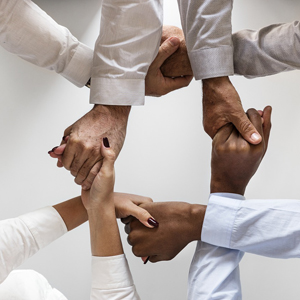Psychotherapy groups
 ©
Bill Farrelll for
Auckland Therapy Blog, 11 August 2018
©
Bill Farrelll for
Auckland Therapy Blog, 11 August 2018
A very helpful resource
For people considering or looking for psychotherapy, being part of a group may well not immediately spring to mind. Often difficulties that cause us to seek help are confusing, painful and embarrassing. The uncertainty likely leads us to look for expertise from a professional. Including assorted strangers in our disclosure is probably not part of our plans.
Why Groups?
A good place to start is to think about ‘Groups that I am in’. If you brainstorm and list as many of these as you can, it may be surprising how many there are. These can include couple relationships (a very small group), families, whanau, teams, work groups, classes, hapu, neighbourhoods, communities, iwi, people, and so on. It is also important to acknowledge that many people are isolated and lonely, and also that groups may be available but unsuitable for a range of reasons. However, for many people a significant part of their identity comes from the groups they are in and where they are known.
Group therapy aims to harness the naturally occurring formation of relatedness and meaning that goes on in groups. Here I am talking in particular about the benefit that can be gained from creating a small group of a minimum of five and no more than eight to ten diverse individuals, ideally representing the diversity of the wider culture in which the group is embedded, with ranges of age, gender, sexual orientation and ethnicity. This is different from a support group, where often members will have a significant issue in common, such as bereavement, or a particular difficulty such as anxiety or depression.
Forming a group
Getting a group together involves both selection (is this person suitable, and will they benefit from this type of group) and composition (how will this person fit into this particular group). The next issue is what will the group, and the group therapist or conductor, actually do? One simple but powerful answer is to get interaction going and then to create an environment of reflection on that interaction. Another way that this has been put is that the process of change in a group involves the deflection of the individual and the group’s attention away from the problem on to the non-problem (which is how to be and relate in a group), and then the facilitation of a form of play. This is so that new patterns of behaviour can occur in a context, which does not support the typical response of the individual, but yet which does support particular kinds of new behaviour, particularly reflection on experience.
Helpful factors
Being in a group as part of one's psychotherapy can seem like a second best option. It may be offered or suggested as a way of saving cost, either by the provider in the case of an agency or service, or by the service user or their funder if they have one. This may be true, but from the perspective of therapeutic factors available in a therapy group and in individual therapy, most of the factors of individual therapy are available in a therapeutic group, and there are many others besides, most of them only available in a group format.
What are some of the factors in therapy groups that can help? I will highlight a few of the factors that theorists have suggested, but there are many more of these. In particular the group can :
- be a safe place, supporting and encouraging members
- help members to work out what is me and what is not-me
- be an arena for safe play
- offer realistic feedback and benign mirroring and echoing by witnesses and referees
- offer protection and shielding during necessary confrontation
- offer safe intimacy, less intense than in an individual relationship
- offer opportunities for altruism, to be able to help as well as to be helped
- offer opportunity to deal with anxieties about shame face-to-face
These factors may not be available immediately to a new member of a group, or to the members of a newly formed group, but members benefit significantly from being part of building such an environment. It will be important that members commit to being in a group for at least a minimum period of time so that cohesion can form and grow.
Where to next?
Auckland needs more groups to help people, and more of a culture that supports those groups, through the provision of physical spaces to meet, and a background of understanding of the importance of relationships and relatedness. There is a lot of experience amongst therapists in running groups, but almost no professional body or substantial training course in Auckland or indeed New Zealand devoted exclusively to this area of practice. Therapists need to encourage their colleagues in this form of practice, but client demand, or at least an openness to consider being in a group, can be a big part of development of this very precious resource.
PS The theoretical ideas that I have touched on in this article include those of Earl Hopper, Irvin Yalom, and Caroline Garland.
